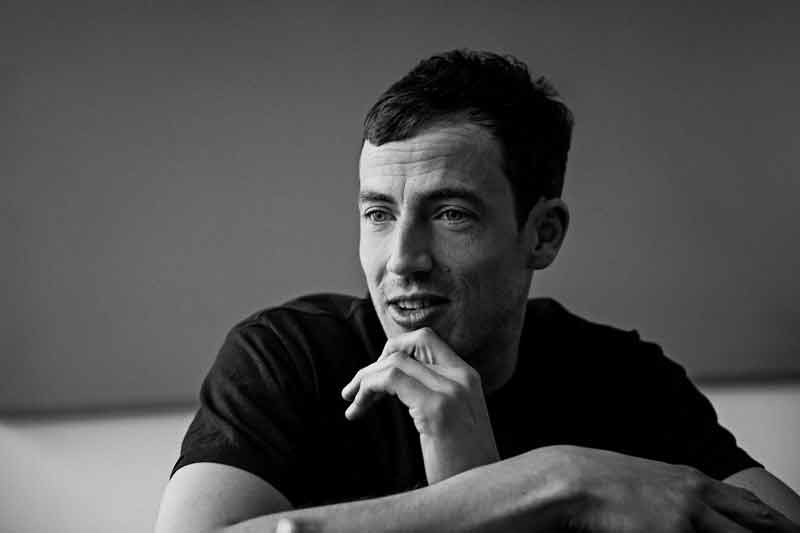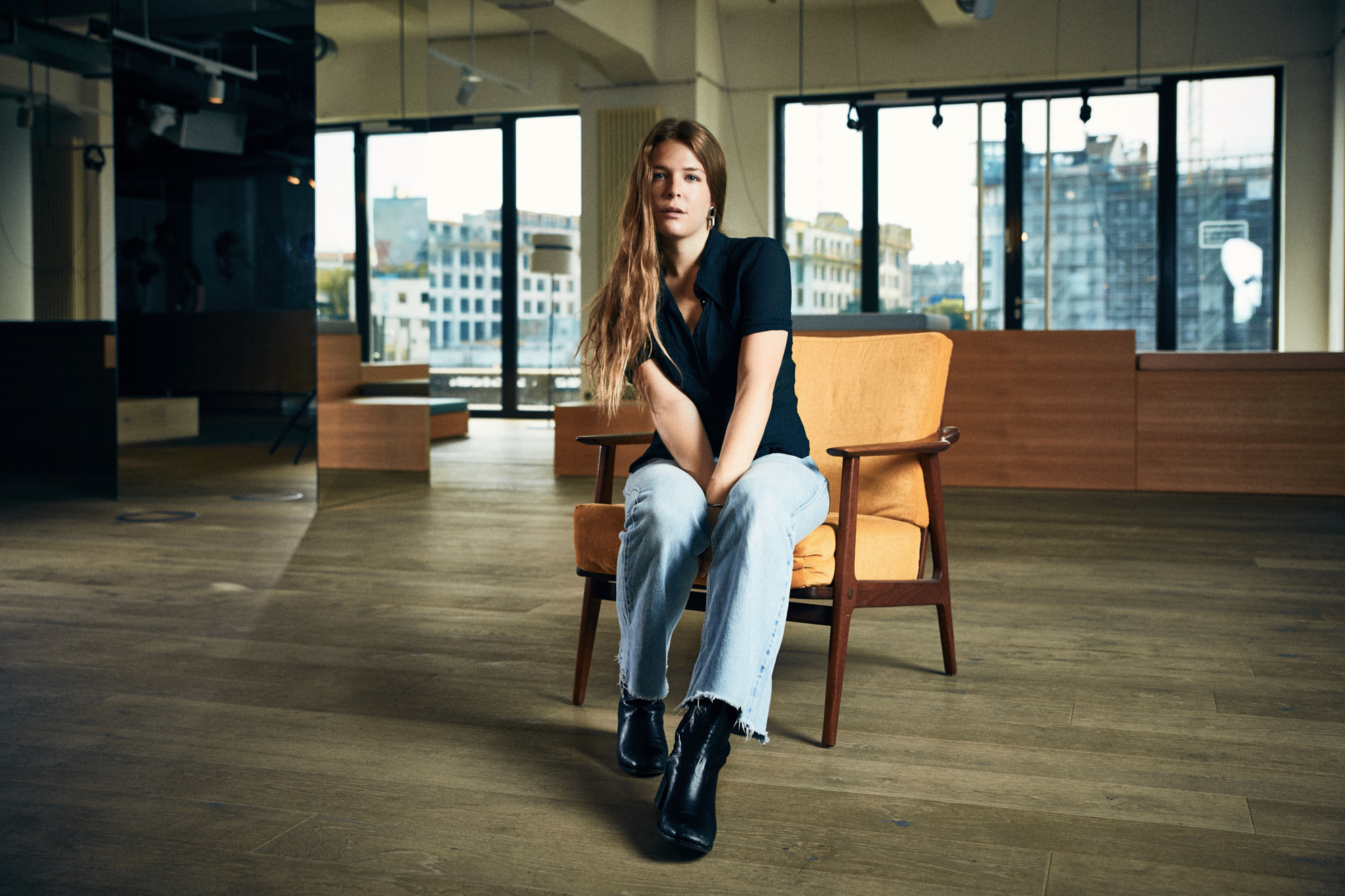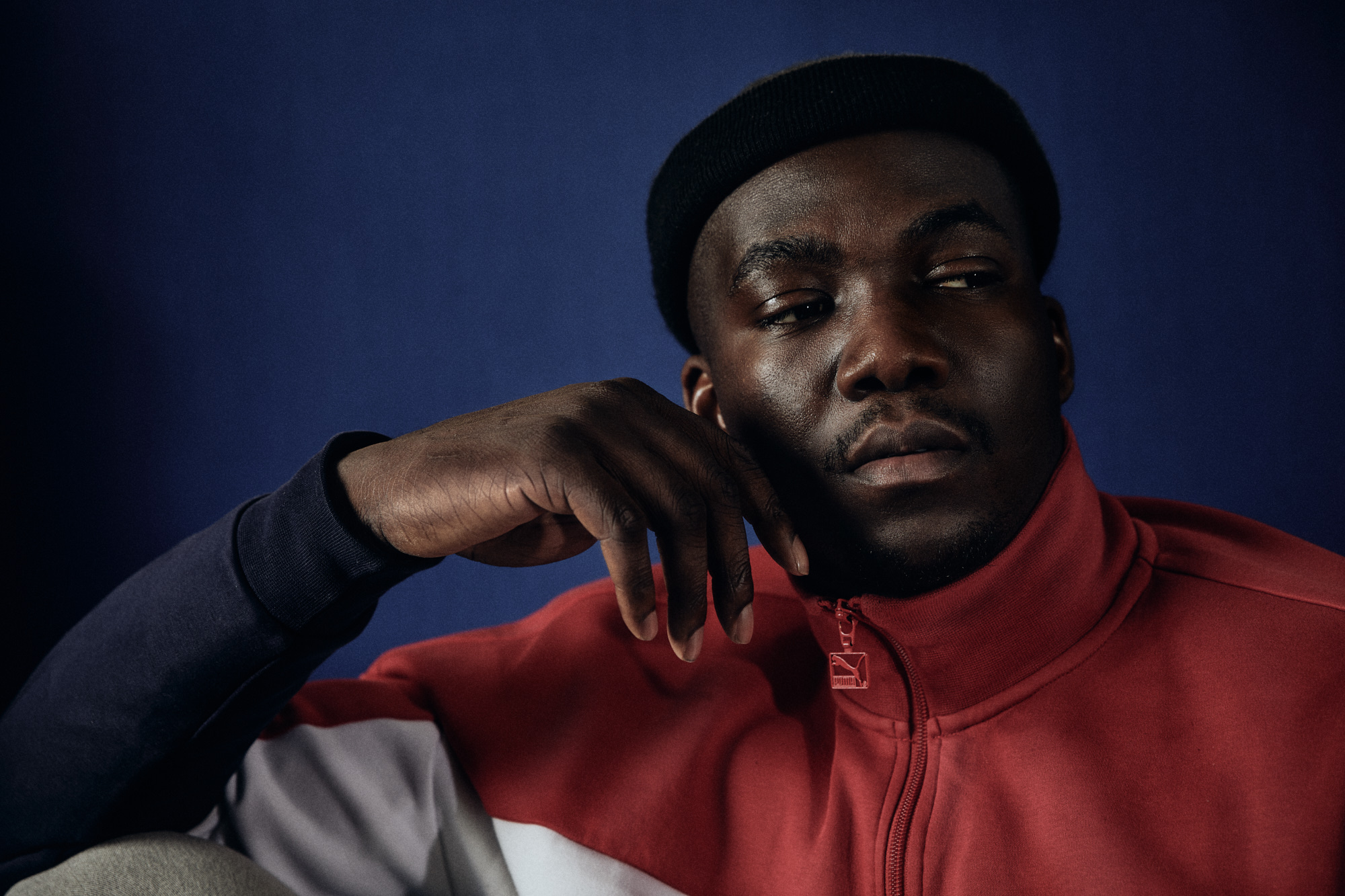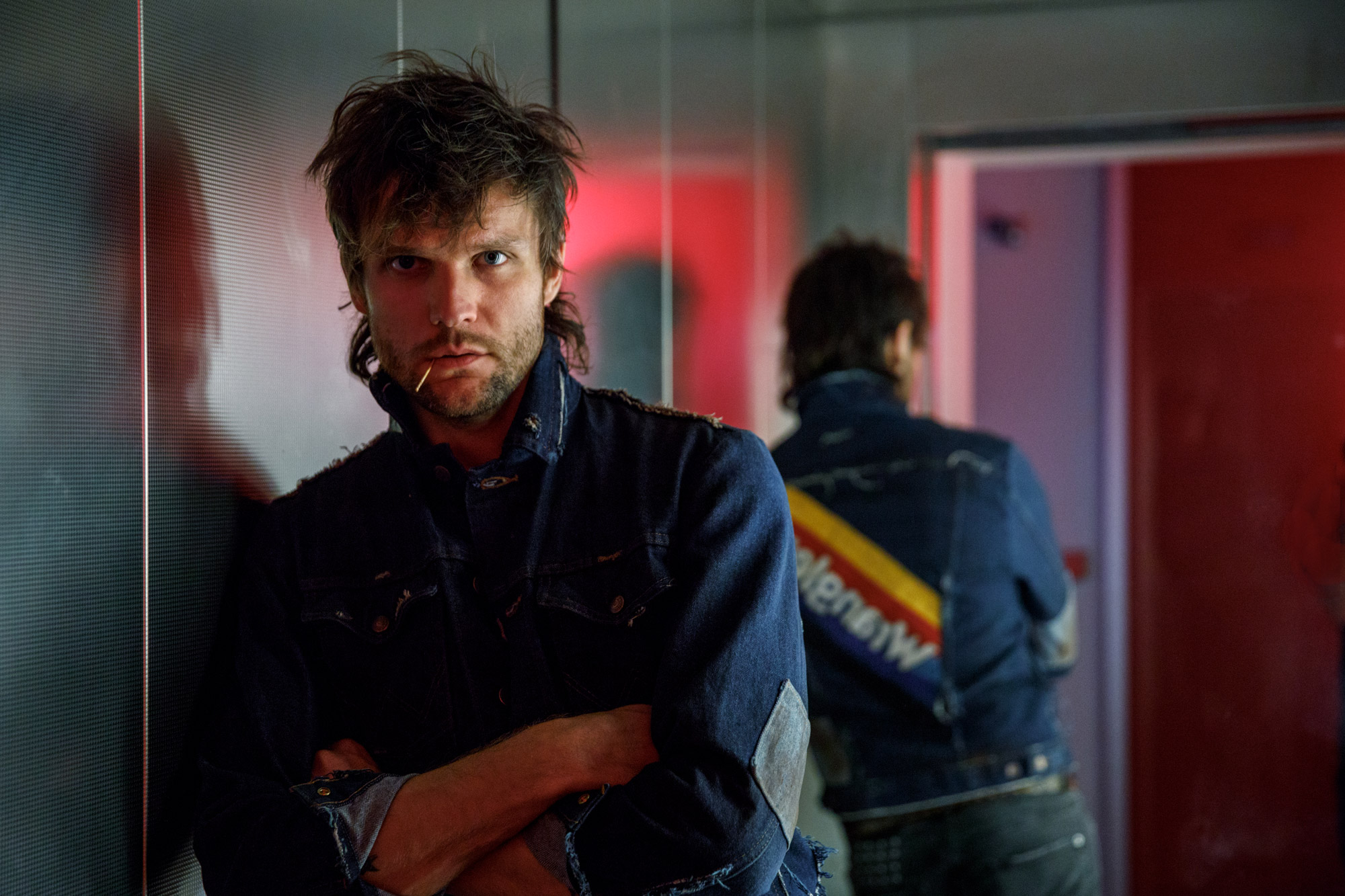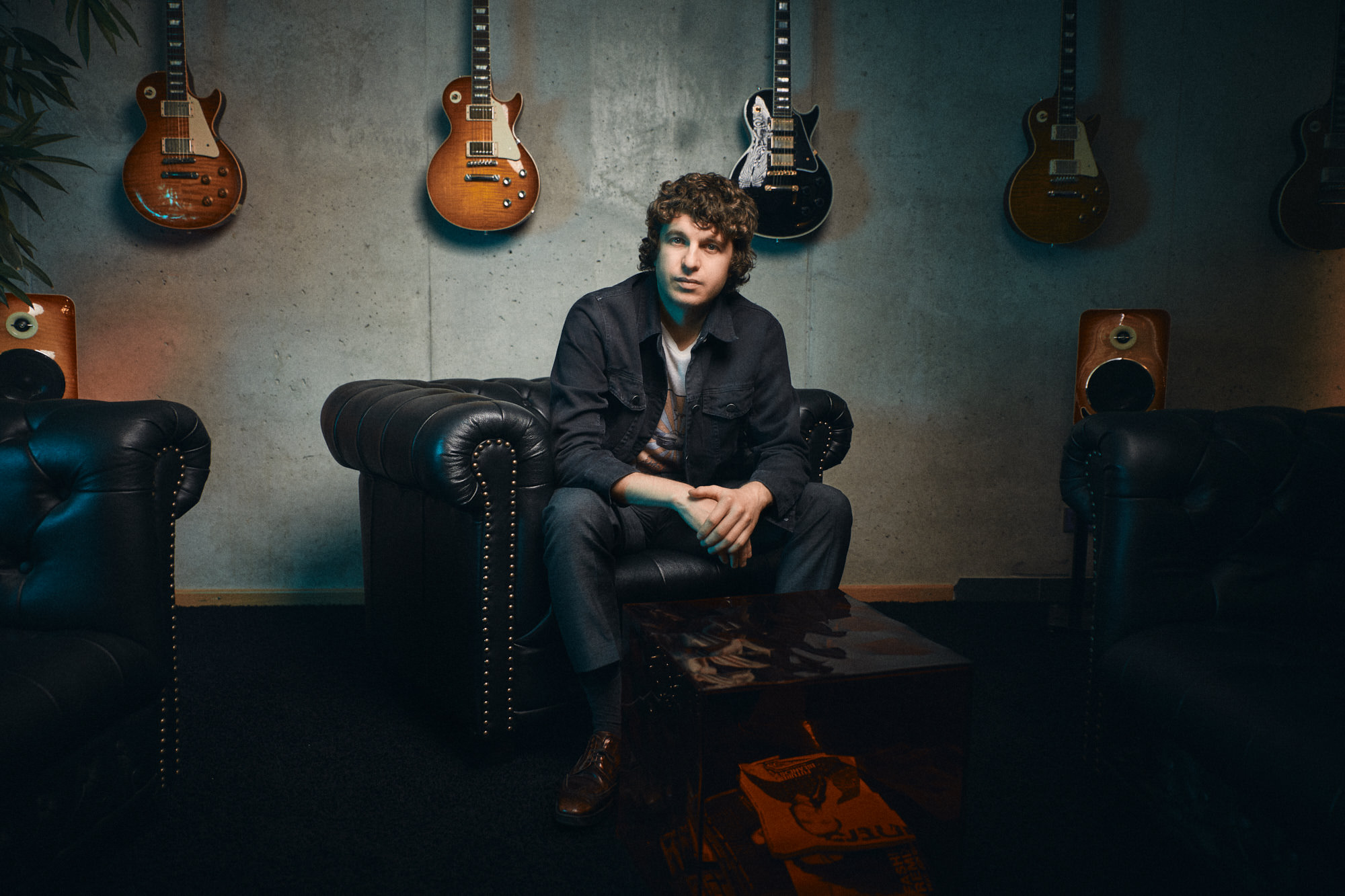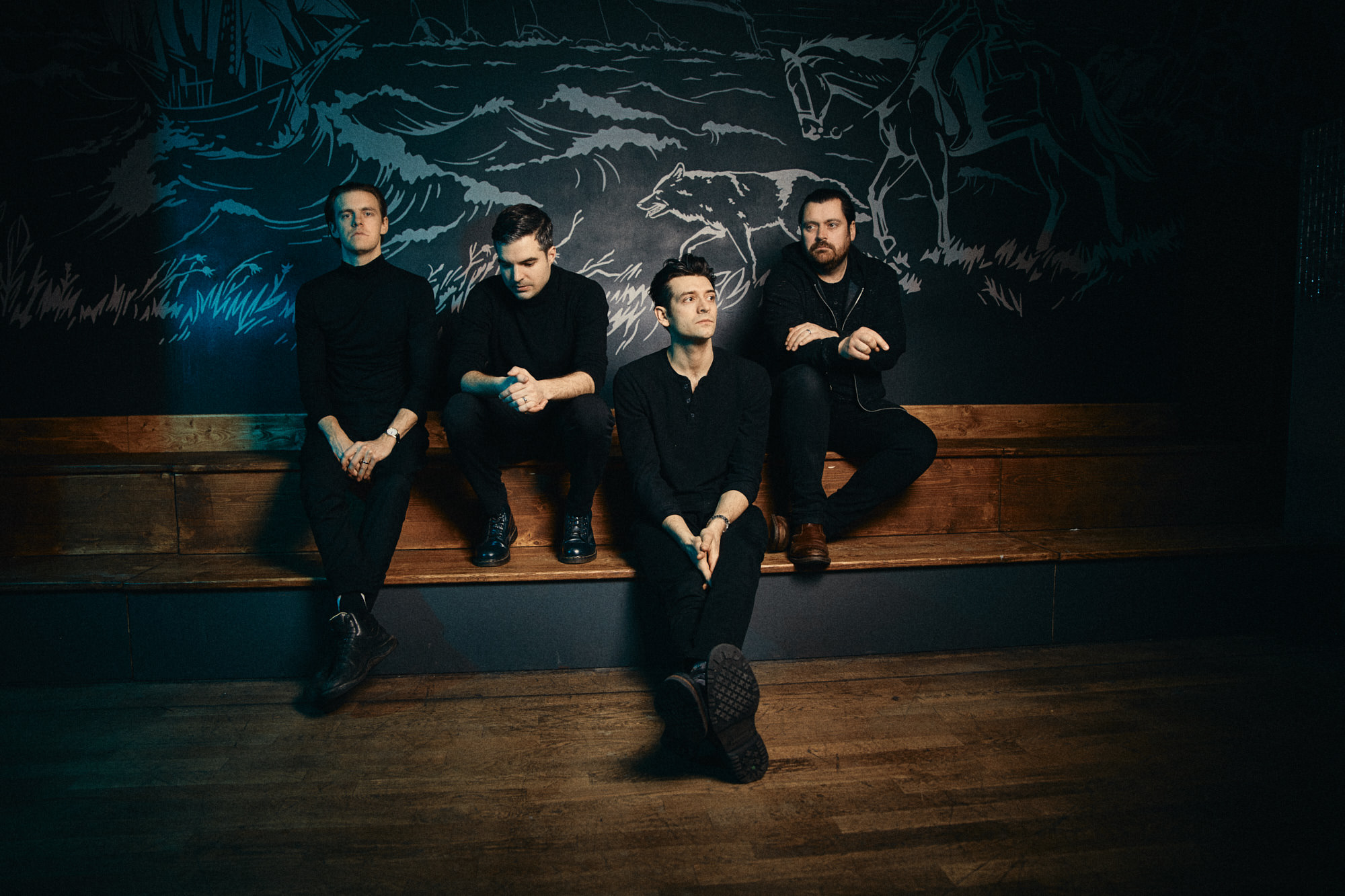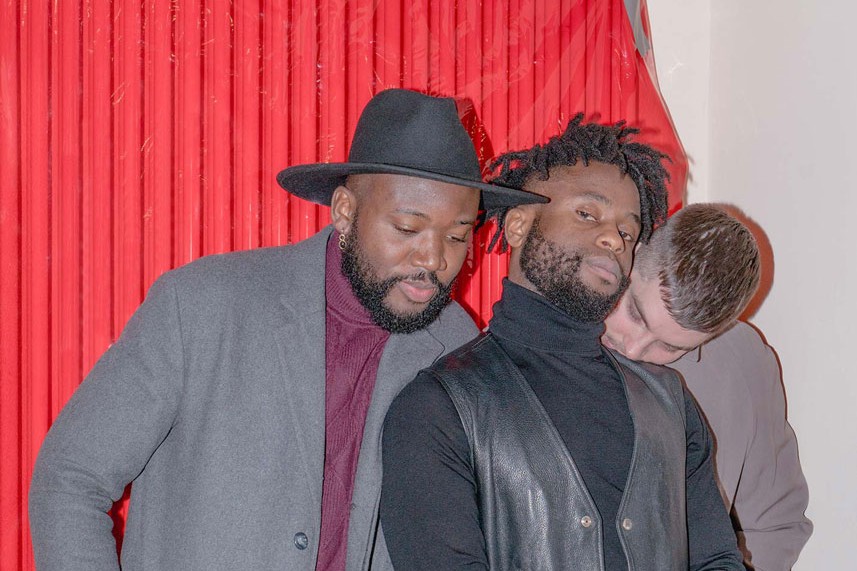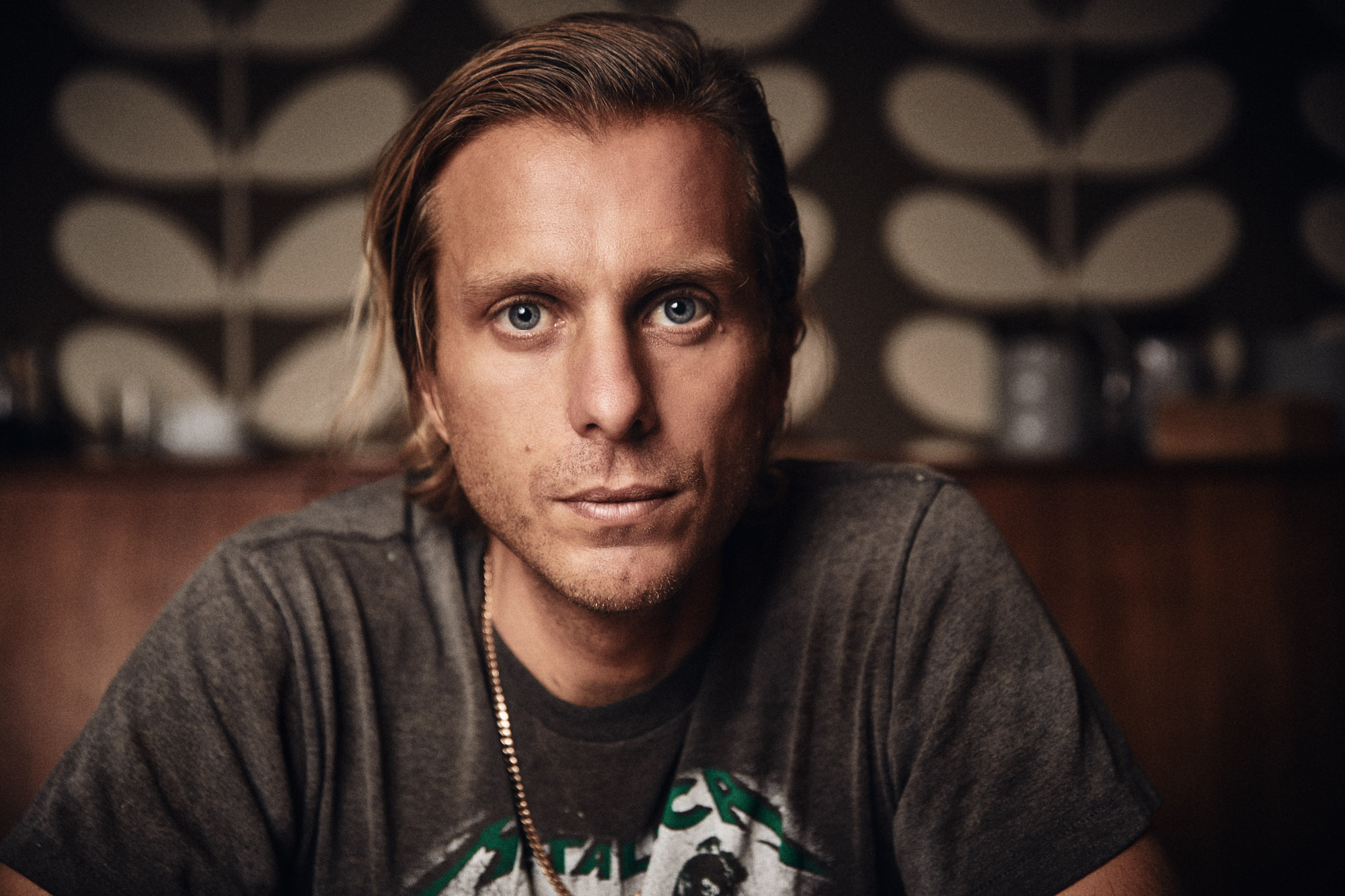Interview — The Drums
Through Clearer Eyes
With his new album, “Brutalism,” Jonny Pierce of The Drums ruthlessly addresses the depression from which he has suffered. But those who think he underlines this with a melancholy sound are wrong—the new record is one of the most energetic, clear and lively pieces Jonny has ever created.
5. April 2019 — MYP N° 24 »Tomorrow« — Interview: Jonas Meyer, Photography: Maximilian König
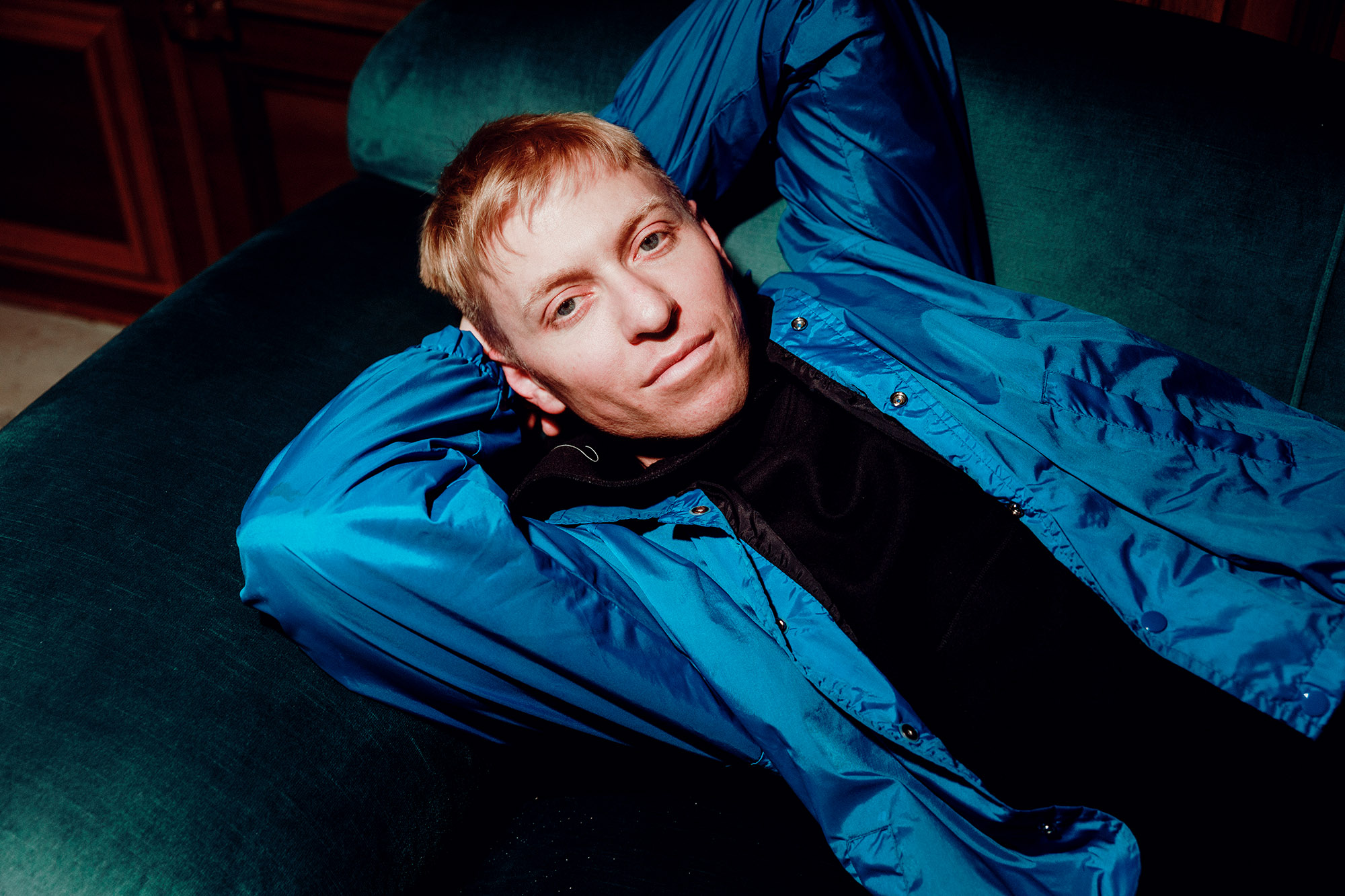
When we first met Jonny Pierce—founder and frontman of the legendary band The Drums—for an interview in autumn 2017, everything seemed to be good in his life. A few months earlier his fourth studio album, “Abysmal Thoughts,” had been released, he had a new love at his side and he seemed to be completely in tune with himself. Our conversation in the Berlin Lido was pleasant, warm and familiar, the following show a blast, as always.
But as is sometimes the case in life, things are not always as they seem. If you listen carefully to the songs on The Drums‘ latest album “Brutalism,” you will wonder with concern what must have happened in Jonny’s life in the last 17 months. Over a total of nine new tracks he talks about his depression, broken love and disappointments in recent years. Sometimes he does this so unconsciously, intimately and openly, that listening to him sometimes takes your breath away. So much for the lyrics.
Jonny Pierce wouldn’t be Jonny Pierce if he weren’t also firing up the musical level that has made The Drums such a cult hit over the years. Anyone who believes that Jonny would give such serious and sad topics similar feeling in sound is completely wrong. “Brutalism” is probably the most energetic, clear and lively album he has ever created.
So it is that Jonny Pierce, whom we met again for an interview in Berlin, also seems somehow more awake than in autumn 2017. His eyes look clearer, his mind shines brighter. Our conversation is as pleasant, warm and familiar as it was then, but much more fun.
Jonny, we hope you can keep that energy!

»I try not to expect that anything is going to be solved overnight.«
Jonas:
Listening to your new record I have the impression that a lot has happened in your life since we met in September 2017. How are you today, Jonny? And if you don’t mind me asking: Who are you today?
Jonny (smiles):
I am doing okay. Musically I’m very excited, personally I’ve always gone through life with awareness. It doesn’t just mean knowing what’s going on around me. It also means being aware of what’s going on inside of me. Sometimes that doesn’t go along with what’s going on around me, sometimes it does. I don’t think I can put a real label on how I am or who I am. I think that something I really learned in the time since we spoke is to almost put that aside. That’s the best for me. I always try to remain open, I always try to be the best version of myself every single day, but I also try not to expect that anything is going to be solved overnight—or that something is going to be solved at all.
Jonas:
Did you have that expectation before?
Jonny:
Oh, I think a lot of people go through life thinking “Damn, it’s all screwed up, but I’ll figure it out! It will all come together, it will all make sense!” But speaking of my situation, I was continually feeling let down because I wasn’t reaching that moment where things made sense for me. As a matter of fact, getting sick seemed to be less normal than ever—and I didn’t even know what normal is. So, the thing that brought me closest to peace and happiness is letting go of that expectation that one day I wake up and just feel great. I find peace by just living each moment, not looking back and not looking too far ahead. The moment right now is where all my attention is, and where all my thought, all my heart is. Some days I’m good at it and some days not. For me, it’s about letting go of these big doughty goals and being ok with very slow progress—with the knowledge that it’s possible that I deal with some of these issues like sadness or anxiety and that I will always have them with me. I’m not setting myself up to fail anymore. I’m being realistic while also trying to stay aware so that I’m not letting myself fall into a spiral. I really think it’s all about awareness.
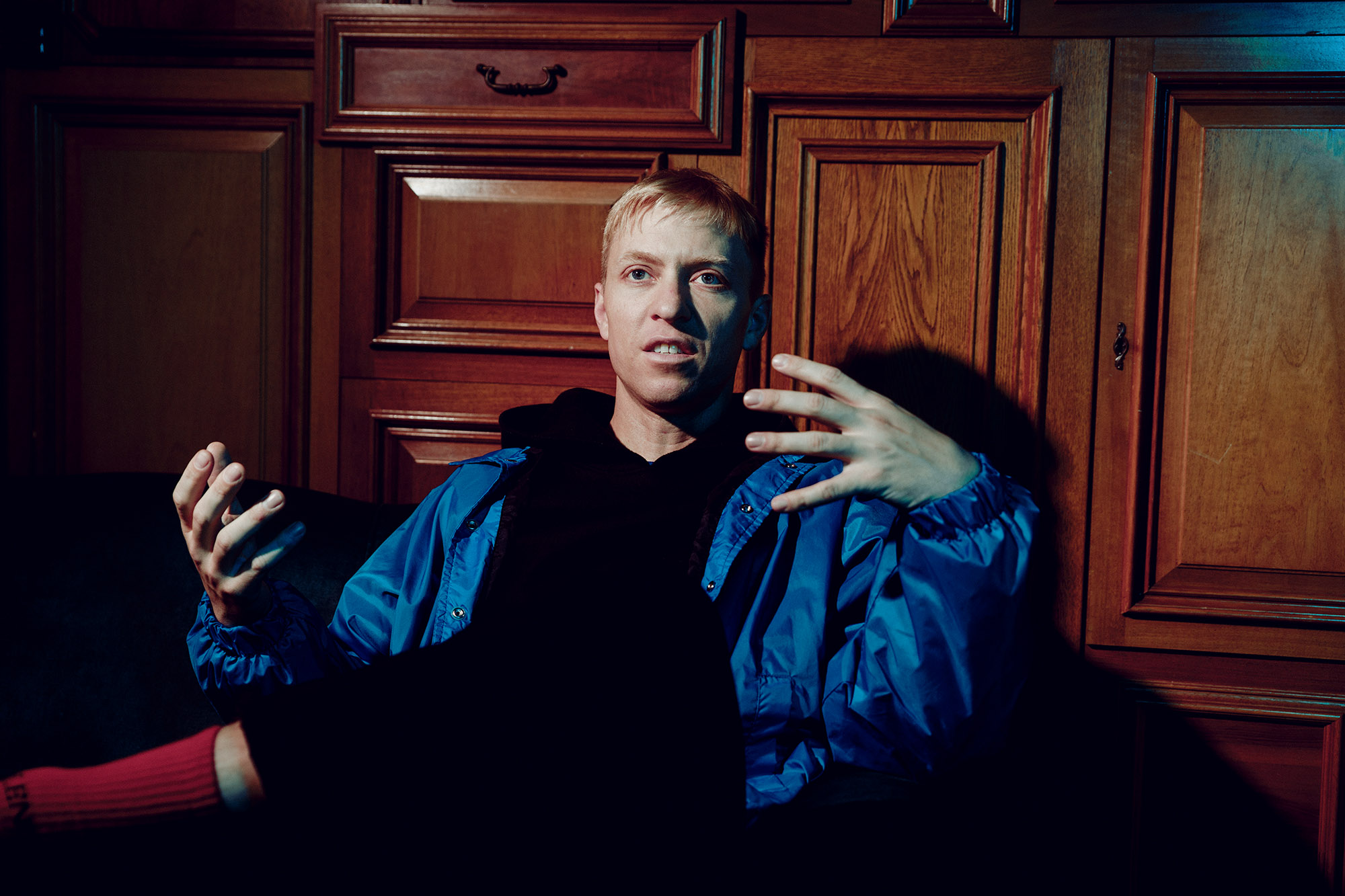
»I’m not a slave to sadness anymore.«
Jonas:
You actually seem more awake than one and a half years ago; your eyes are clearer. It’s interesting to see that.
Jonny:
I want to record that and play it! Clear—that’s exactly how I feel. Something kind of interesting has happened to me, which I’m benefitting from on all sorts of levels. I have started really trying to take care of myself, it’s a great effort in self-care that I’ve never experienced before. It involves therapy once a week—the type of therapy where you cry, yell and sometimes can’t even speak. I’m really putting myself into it. Another thing that is just as big for me, if not bigger, is that I’ve changed what I eat. I know I sound odd, but I have dealt with depression my entire life and I’m not depressed anymore. My depression lifted when I changed my diet. I still get sad though, but I don’t have that overwhelming depression that I’ve had my whole life. It’s gone! When I do feel sadness, it’s a sadness that is more honed and like narrow. I can take it away from me or bring it closer to experience it. Usually I’ve been a slave to my emotions and, you know, I’m all about expressing emotions, but I’m not a slave to sadness anymore.
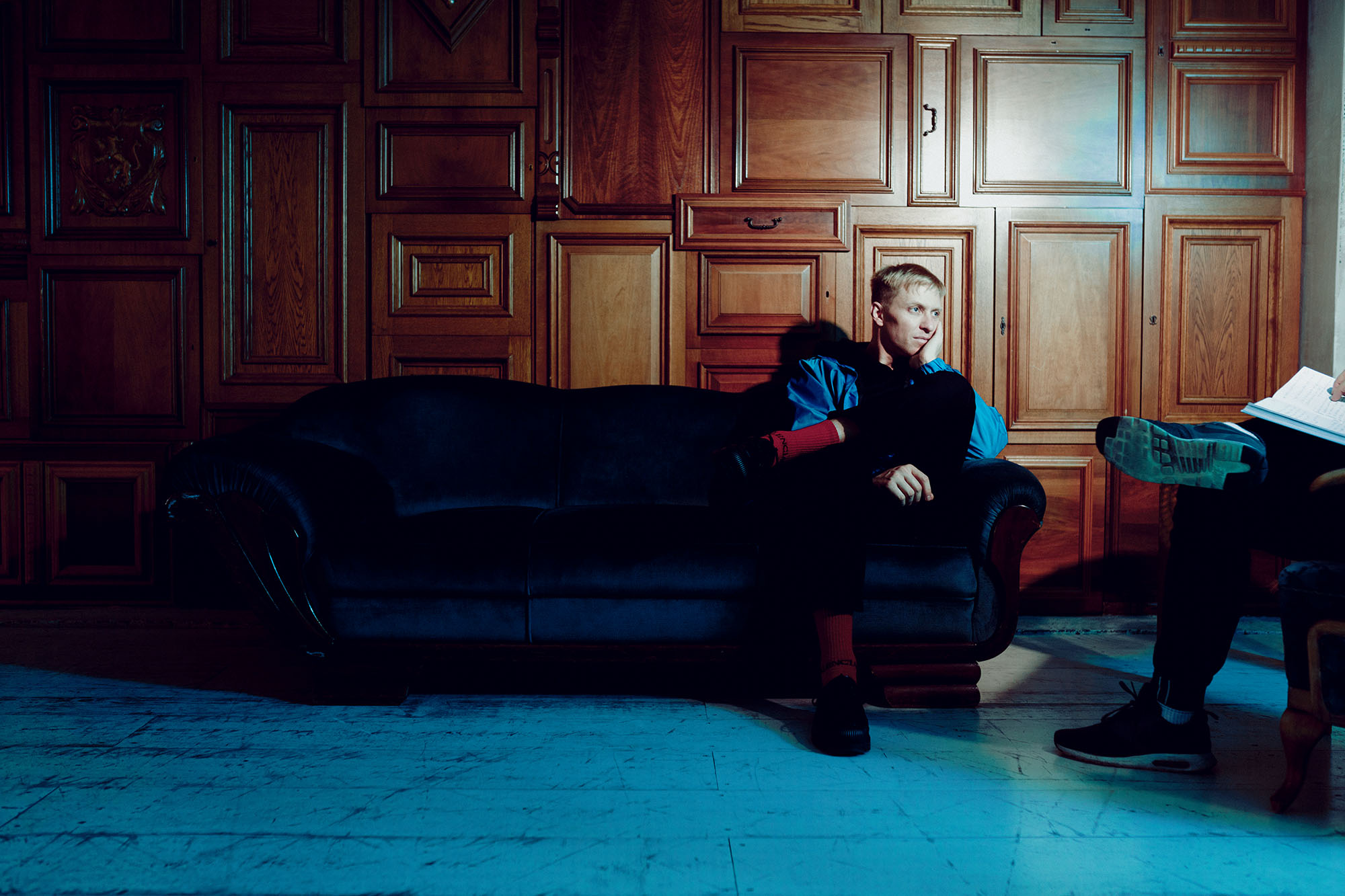
»Breaking relationships are usually messy, no one learns anything.«
Jonas:
In 2017 it needed someone else—your then-boyfriend Keon—to feel happier, to feel better. Does it only need you alone today?
Jonny:
After Keon I fell in love again—and moved to Belgium. I gave up my life in New York for living in Brussels with a guy. That was a big change for me. Then, a few months ago, we split up and I’ve gone again through a breakup of a relationship. It seems that sometimes I love someone so much that I forget to love myself. There’s no love left for me. I typically fall for guys that take all the love I can give them and never think to give it back. But this time I’m able to see it in a whole new way. I still can’t get the combination of where I am in my life and what I’m eating, but my new diet has actually helped me navigate through the new spaces of this breakup. Breaking relationships are usually messy, no one learns anything. But today I can sit here and say that it feels good, which is all new for me.
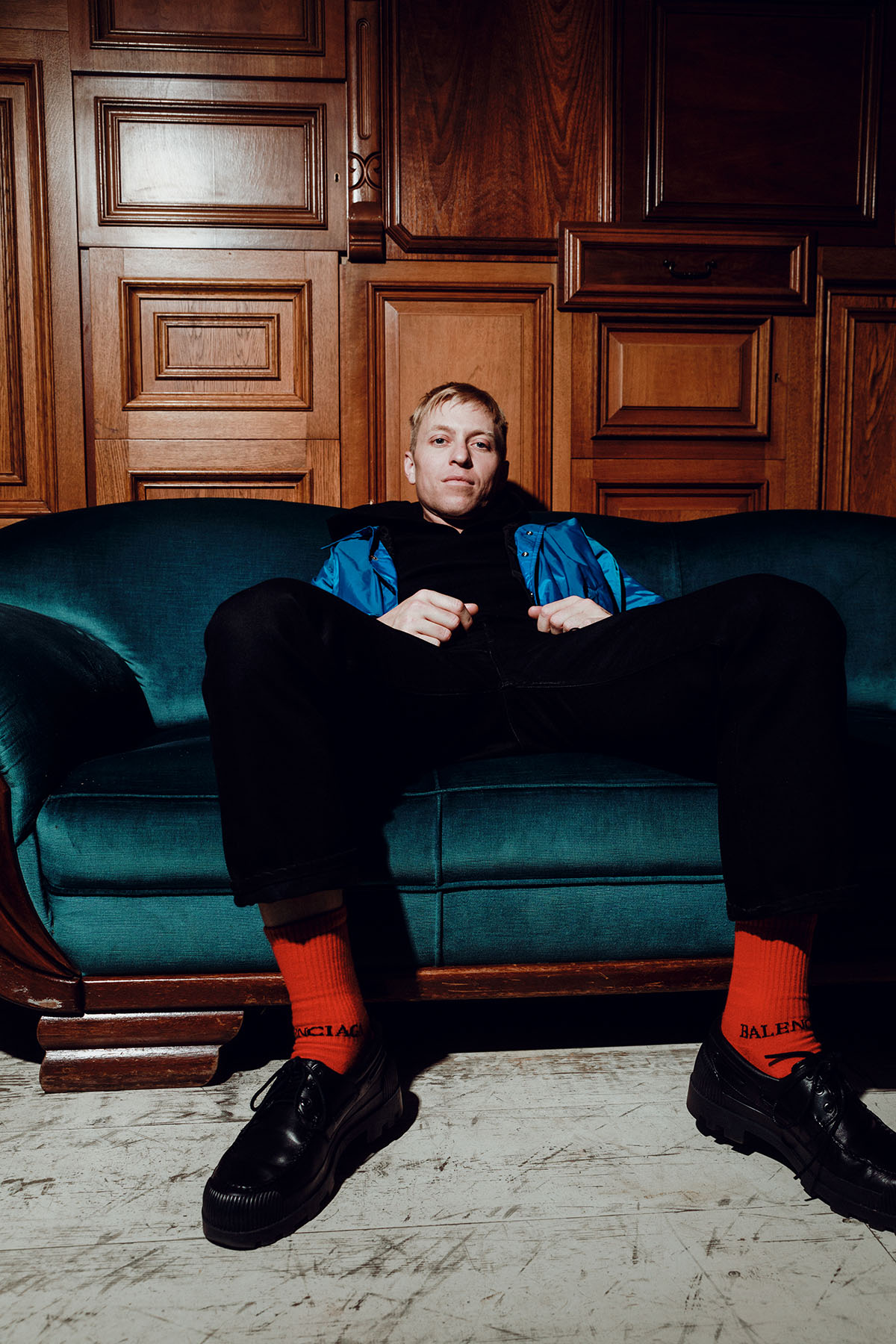
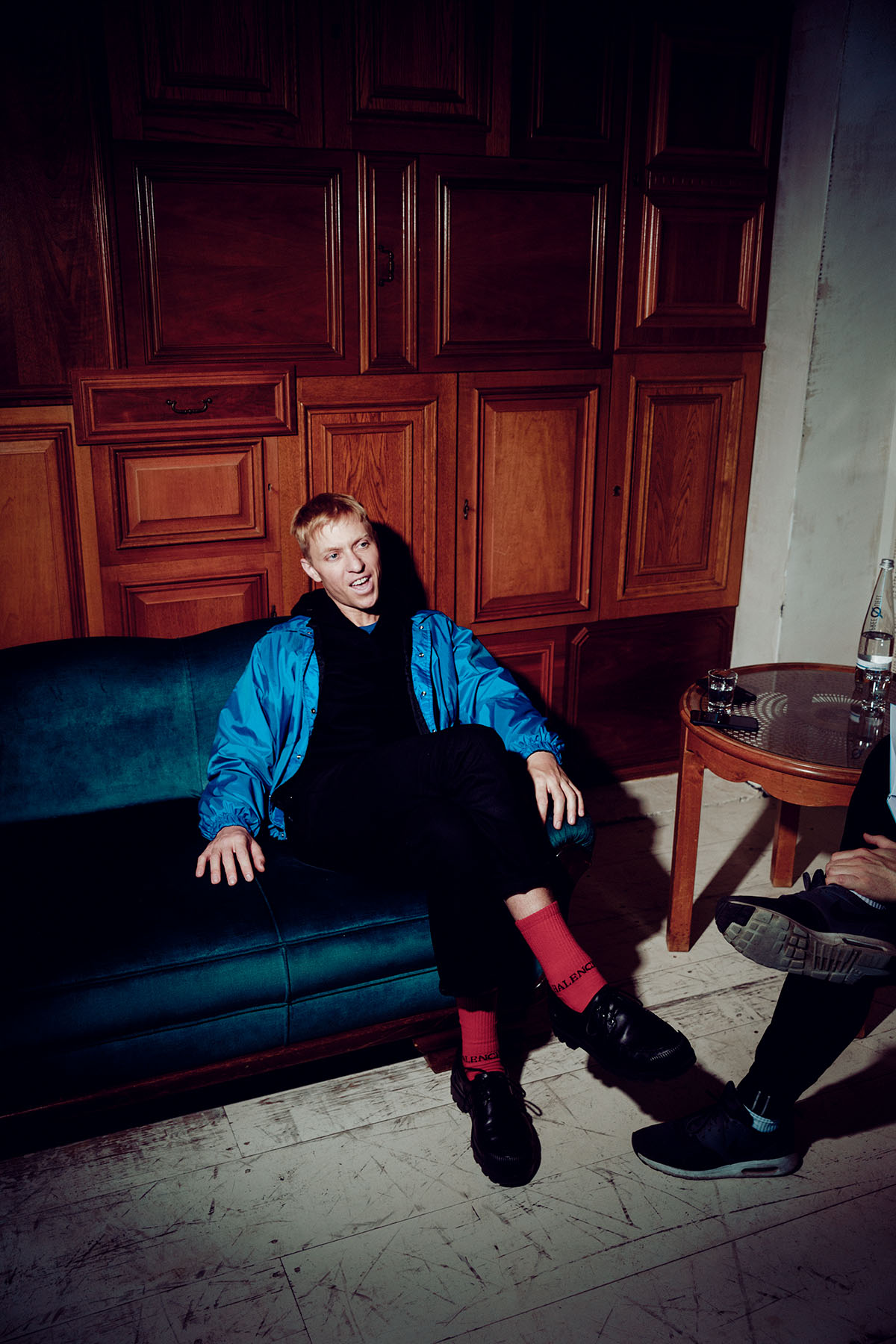
»Even if you treat me like garbage, I still find beauty in it. I romanticize pain.«
Jonas:
Does the title of your new album, Brutalism, refer to how it feels when a relationship fails?
Jonny:
When I lived in Brussels, I saw a lot of brutalist architecture. It really reflected the relationship I was in and the type of love I was experiencing. The love I was putting out myself was heavy, thick and impractical. That wore me down and was exhausting. It just felt like an extreme type of love where you just continue to pour into someone and don’t get anything back. It simply isn’t sustainable—like a lot of these martial buildings, they’re almost empty though. It just felt inappropriate to hide that for the album. On Brutalism, I’m essentially saying what I just told you: Even if you treat me like garbage, I still find beauty in it. I romanticize pain.
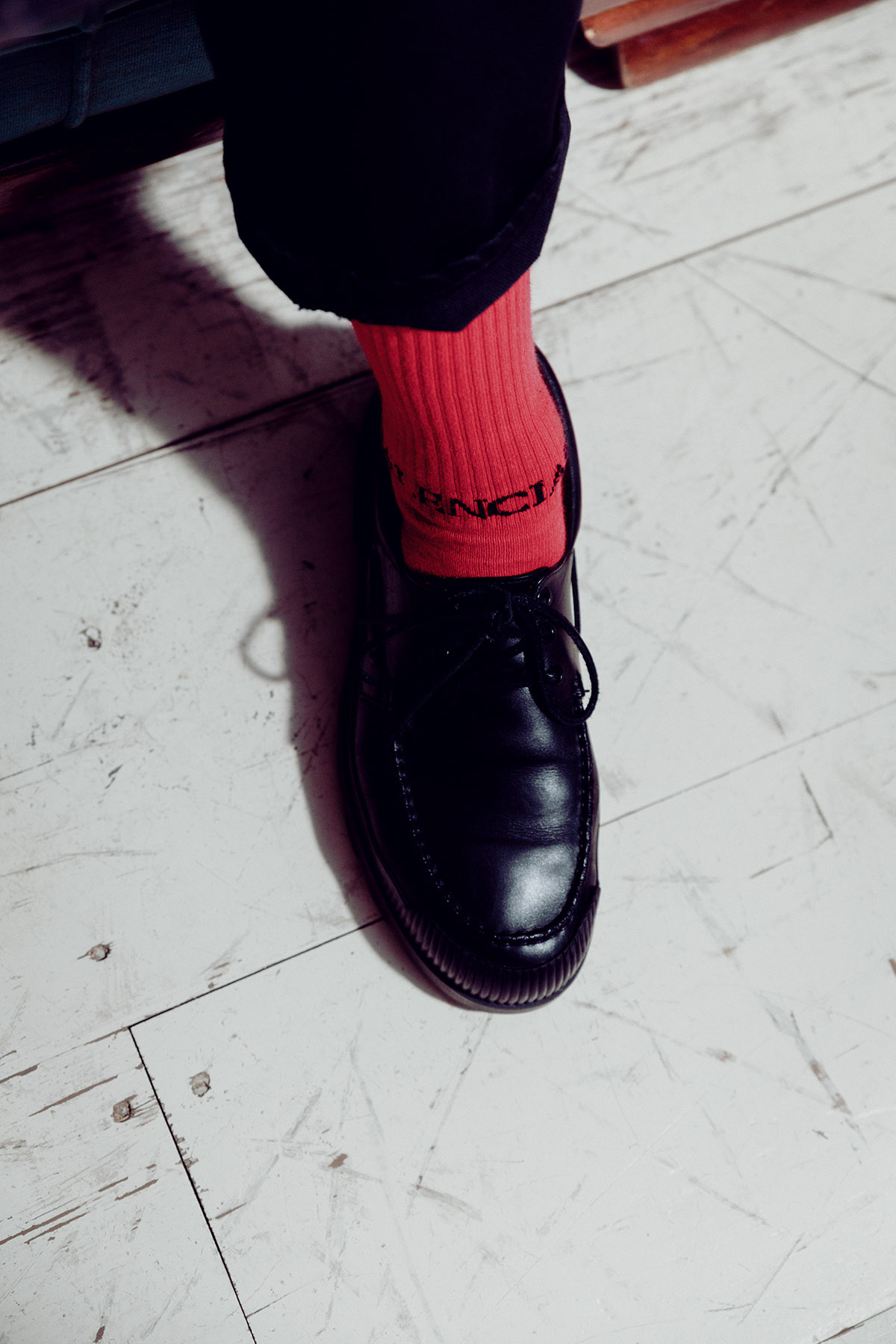
»Music has become so predictable and so I don’t mind when it’s not.«
Jonas:
There’s one song on the new record that feels especially brutal. With “Nervous,” you let us, the audience, witness the moment when you guys break up. It almost takes your breath away, you don’t dare to say a word. Why did you decide to combine these heartbreaking lyrics with such soft and innocent music that could be played on a high school prom night?
Jonny (laughs):
Because I think there’s something really sweet in sadness. There’s so much beauty in that—just like there’s so much sadness in beautiful, sweet moments. Maybe it’s because of the idea that they’re fleeting. You experience something and fear that this moment will end, that the magic of a relationship will go away. In my mind, sadness and sweetness are so intertwined. It’s really hard to separate one thing from another, they go hand in hand for me. It’s something that characterizes all of my songs from the beginning. They’re either sad-sounding with a bit more uplifting lyrics or there’s kind of a danceable music with really morose lyrics. But I’ve never sat down and tried to come up with a formula, my music is just a reflection of who I am as an artist. That’s what naturally comes out—and sometimes it’s just nice to deliver that. As a music listener, I like when I’m kind of rattled a little bit and something unexpected comes at me, maybe to hear a sweet melody and, when you pay attention to the words, to be stunned. I think there’s something nice out of that. Music has become so predictable and so I don’t mind when it’s not.
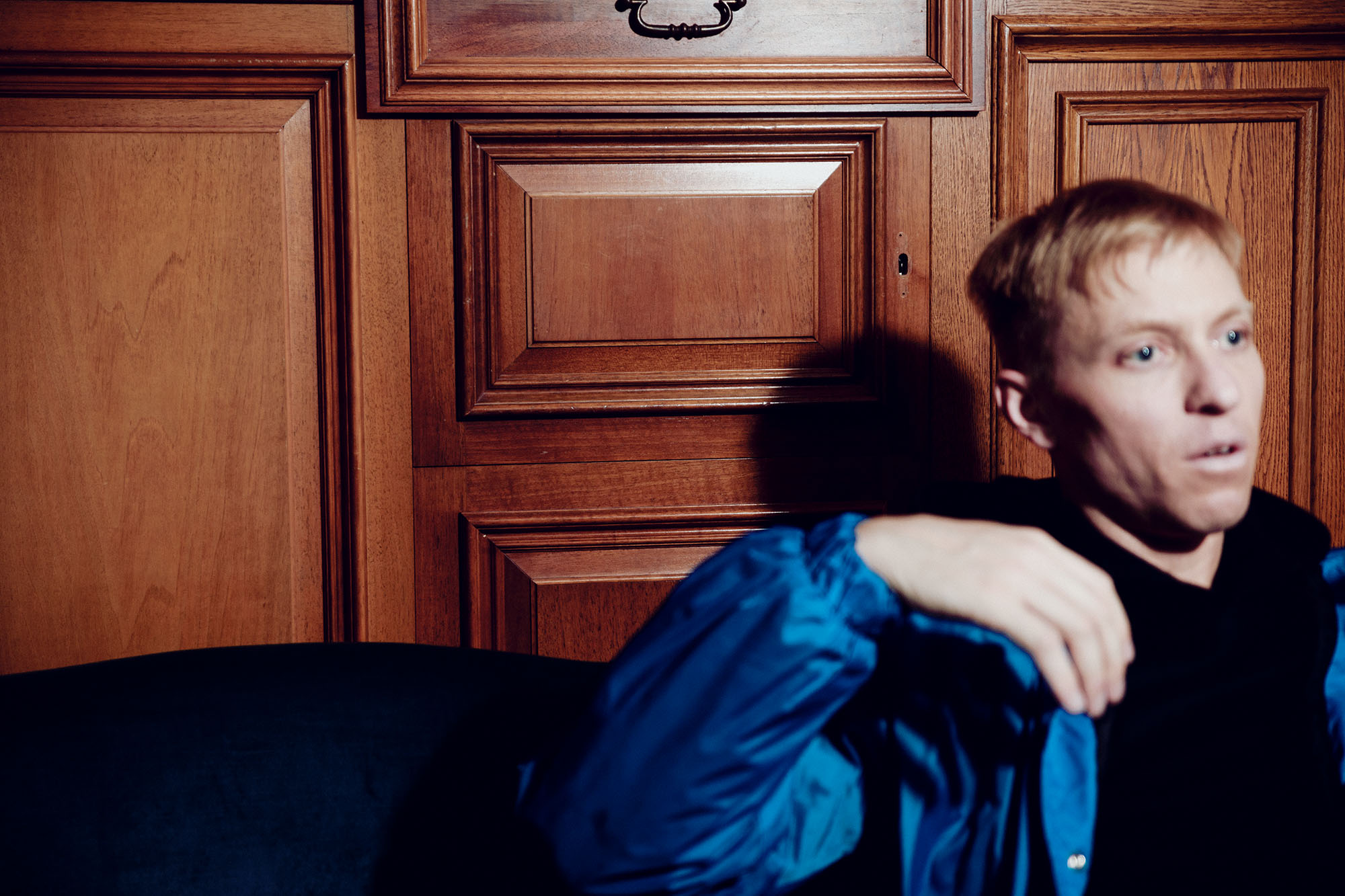
Jonas:
Your song “Nervous” starts with the words “Two nights ago we said goodbye.” Was it really two days after?
Jonny:
It was!
Jonas:
Did writing these lyrics help you to survive that breakup?
Jonny:
The song refers to the time of my divorce a long time ago, I actually wrote it for my last album, Abysmal Thoughts. I never thought I would release it because it was very personal and it just hurt too much to listen to it. But now, I’m ready to give it to the world—I feel strong enough to do it.
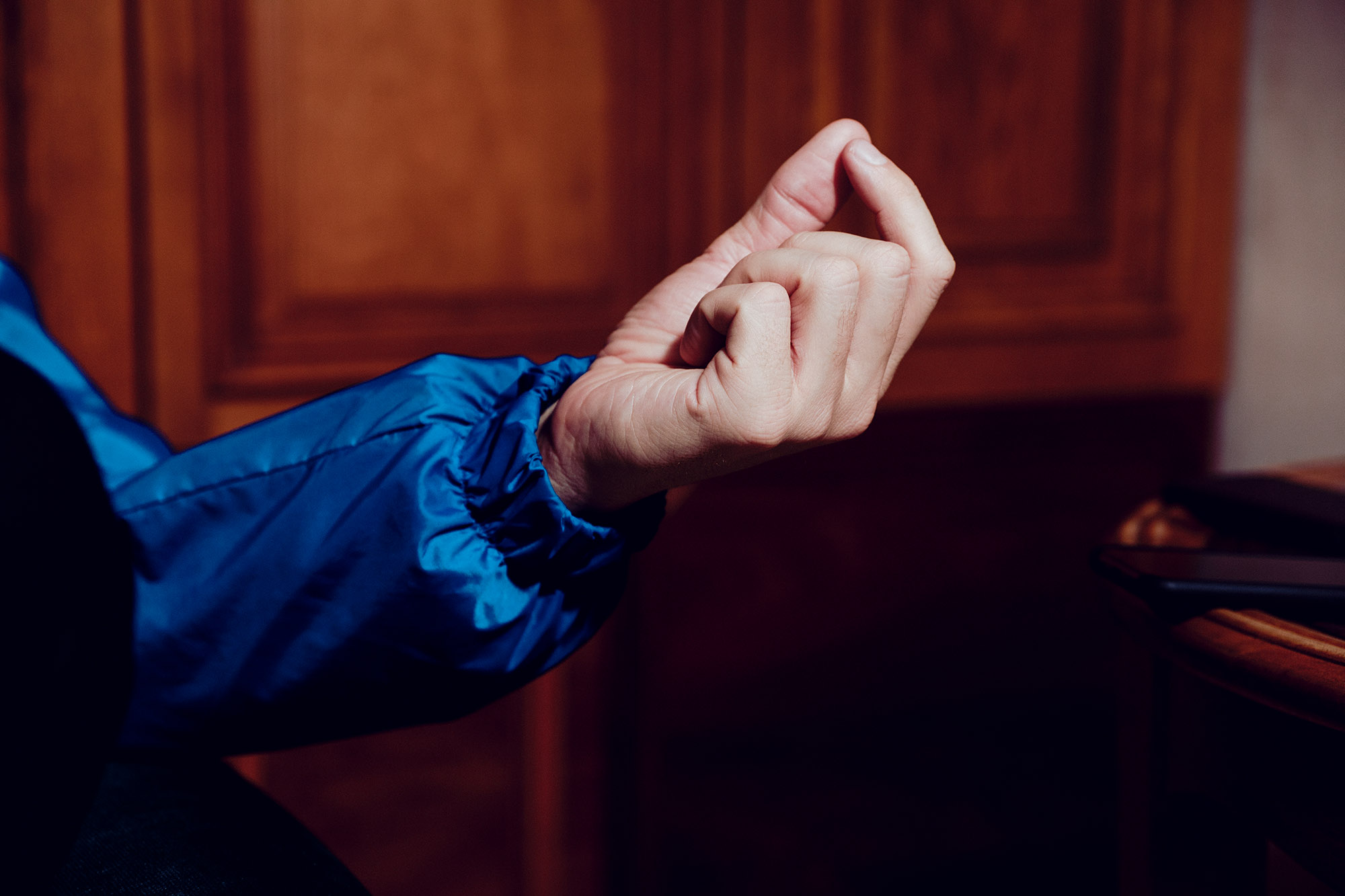
»I wasn’t ready to give up fighting, but I knew that I had lost—that we had lost.«
Jonas:
Listening to “Nervous” has a pretty interesting effect. It feels like we—the audience—are actually witnessing your husband coming to your house one last time, holding his coat and not knowing where to put it down. Is being so relentlessly open in your music kind of a coping mechanism that has always defined you as an artist—along the lines of Carrie Fisher’s quote “Take your broken heart, make it into art?”
Jonny:
Let me say it that way: If I would be a postman or worked in a bakery, I wouldn’t know how to express this stuff. I feel very fortunate that I can put all this into songs. There have certainly been times when I was writing a song simply because I just had to release something, and then there have been other times when I was more relaxed.
I remember how vivid these feelings were when I lived in Belgium and how crushed I was after things had been said that you can’t take back. I was being treated in a way that I just knew I could never forget it. For me it was the death sentence. I wasn’t ready to give up fighting, but I knew that I had lost—that we had lost. My time in Brussels was so horrible. I planned to do my whole album there, but I only had time to do one song because I was so ripped up. I couldn’t even get to the point of making art. I just was too exhausted. This song is called “I Wanna Go Back.” It’s about wanting the impossible, trying to heal a wound that is too deep to heal. That’s an example of a song where I just had to put something down so as not to go crazy, and that really helped.
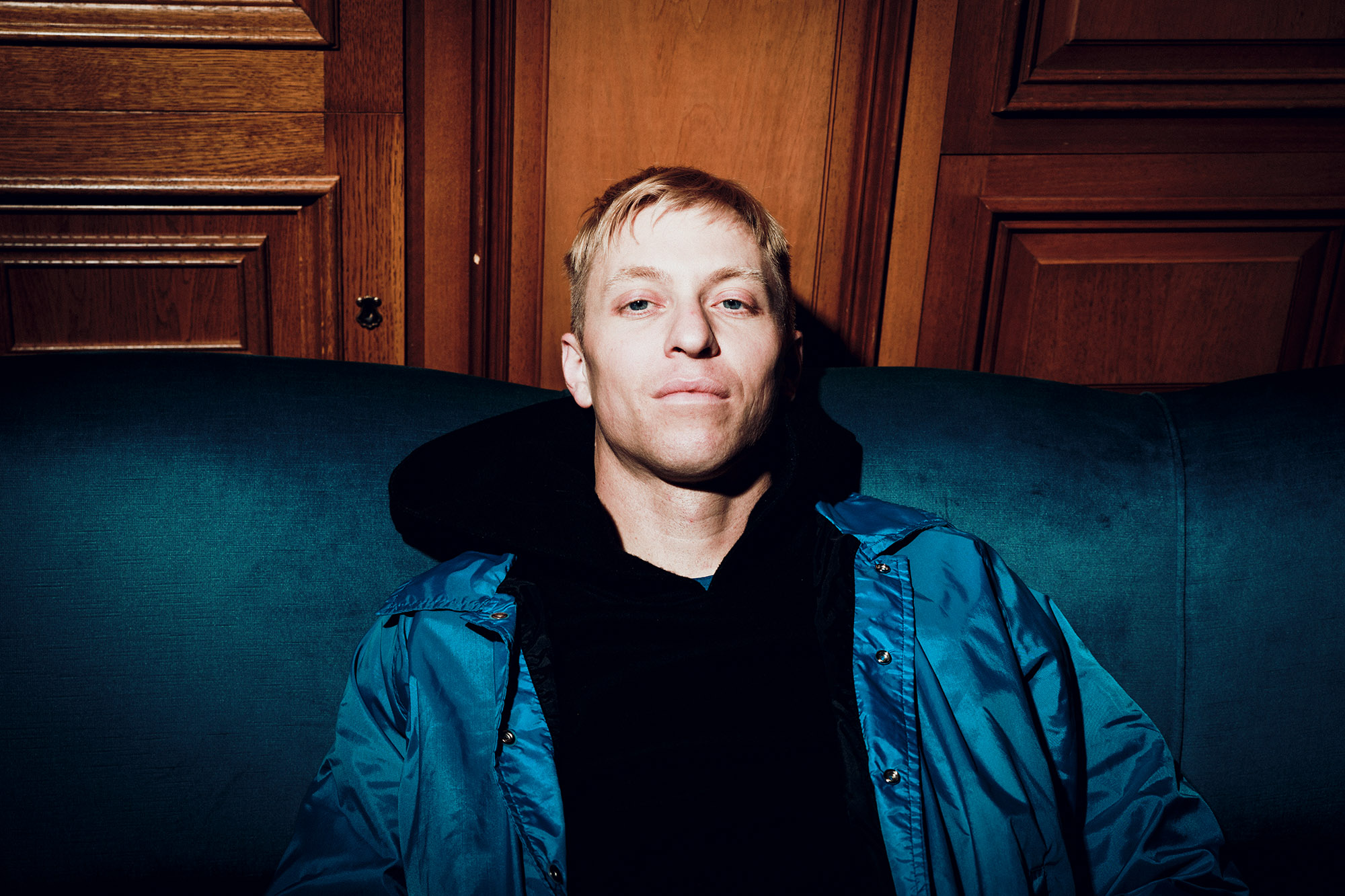
Jonas:
Despite the difficult topic and all the hard lyrics on Brutalism, your new record sounds pretty energetic and vivid. A good example of this is the song “Pretty Cloud” with its strong and vibrant beat which is kind of reminiscent of a Berlin techno club. Why did you decide to combine the lyrical melancholy with such lively composition?
Jonny:
The musical side of Brutalism definitely is the most playful I’ve ever gotten. When I started this band, I started it with some other people. They had a pretty tight grip on my psyche and in that way a kind of power over me. I was the guy writing the songs, but I was thinking about how they would review it—I wrote through their minds in a way. I had my mind, too, but it was a shared mind and there was a part of me that wanted to get their approval. That was often suppressing my musical fetishes. I think with Abysmal Thoughts I had some ego left in me and it seems that’s why I didn’t want to be so experimental and playful with the music. I just wanted to show to myself and to the world that—although all band members except me have gone—here’s another album that sounds like The Drums. I wanted to prove that I can do this, and I’ve been always been doing this. It was kind of a statement for me, it just felt like I needed to. Now I look back at that idea and know it’s silly, but it is what it is. With Brutalism, I don’t have to prove that to myself anymore—or to anyone else. I just wanted to go off the bucket list where I have all the stuff I’ve been holding down and make a record with it.
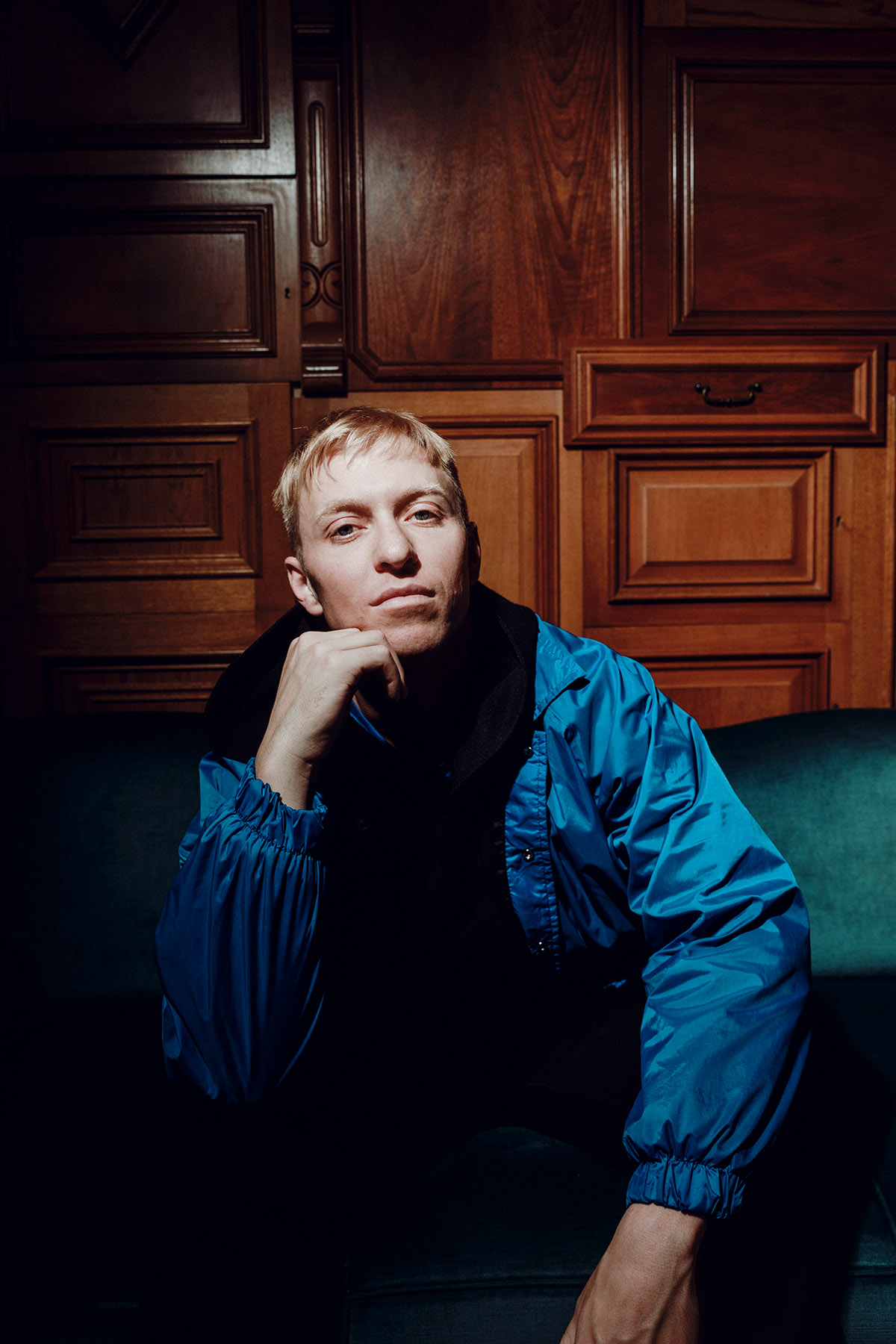
»It was one of those romances that went from pure bliss to pure hell and back.«
Jonas:
The word cloud can be seen as a cypher for depression. Why do you call this cloud pretty?
Jonny (smiles):
I’m a little self-embarrassed to admit that. “Pretty Cloud” was the nickname I gave to my Belgian lover, that’s how I would call him because he was so beautiful, but he was also like a rain cloud. I mean, men can’t get more poetic than he did, everything about him was this romanticized, tortured artist. He is one of these impossible human beings and—additionally to all of that mystery and allure—stunningly handsome. You get lost because he is so seducing on every level. I’m still seduced by him, I still think of him 300 times a day. It was one of those romances that went from pure bliss to pure hell and back—from hour to hour and sometimes just from minute to minute. There was nothing in between, it was always an extreme. Always.
Jonas:
Speaking of clouds, in our first interview you said that something you learned from Los Angeles is that you need clouds and rain in your life because you grew up in upstate New York…
Jonny (laughs):
Yes, I remember!
Jonas:
Still, you decided to record Brutalism in California—in Stinson Beach in the Bay Area to be more precise. It’s much rainier and foggier there. Does it mean you made peace with California?
Jonny:
I have made my peace with California, to be honest. I moved back to Los Angeles and spent a month not traveling at all, I wasn’t going anywhere. A month doesn’t seem to be a long time for other people, but for me it is. For the last ten years, I’ve been traveling almost nonstop. Half of it was for work, the other half was because I love to travel.
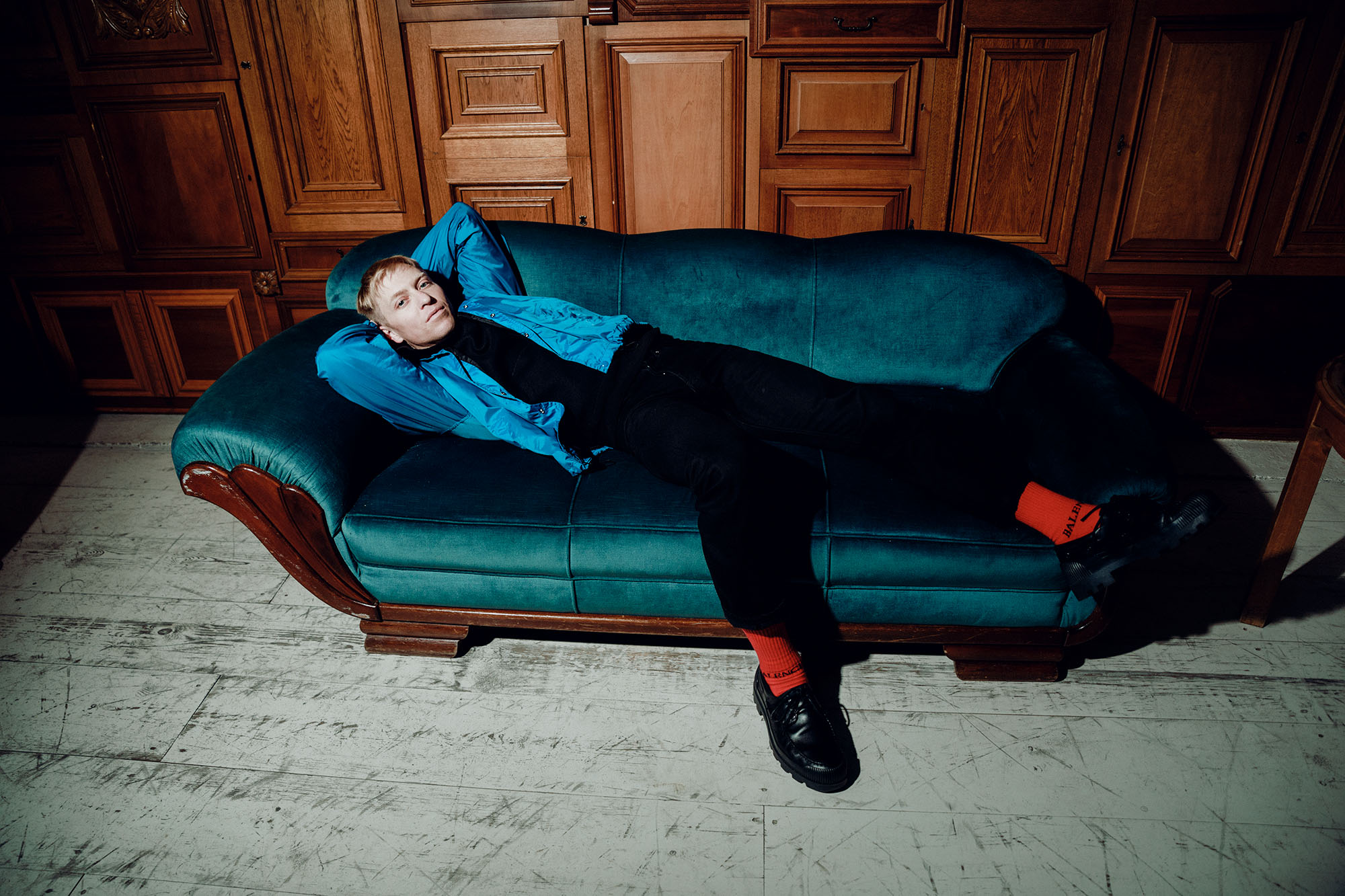
»I faced serious problems because it was just me and the mirror.«
Jonas:
Is this the reason why you sing “I have never had a home” in the song “Loner?”
Jonny:
Exactly. So, my therapist said, “Why don’t you try not to travel, maybe for two months?” I said, “Okay, I’ll try one month.” The first two weeks were pure torture. I was so unhappy, I just wanted to cry. It was like coming down from a drug. I faced serious problems because it was just me and the mirror. That was it: me alone in this big apartment in LA, being in a new city again, not knowing many people there, not having a record to make. Brutalism was already finished, and I was waiting for the press tour to start. So, today is day two of the first bit of travel I’ve done since that break.
Jonas:
To end our interview, I have five short questions for you. Number one: What exactly happened at 626 Bedford Avenue, as you sing in the song “626?”
Jonny (sighs):
I had a horrible, horrible date there. Long story short: I met a guy who I had never met in person before. We hung out and went over to his place—which I don’t ever do normally. I’m not that kind of person, I like to have a pizza before. When we were at his house, we kissed, fooled around and had a beautiful conversation. But when we were looking at each other’s eyes, he kind of evaporated. He seemed to disappear more and more. I think he suddenly realized that he was coming to something beautiful, and like a lot of people he seemed to be scared to lose something. By the way, that’s one of my first songs where I’m calling someone out on their bullshit—instead of wondering what’s wrong with me. My whole life it was my default to unload all the shit on myself. That led me to a lot of unhappy places. It took some time to see that, when somebody acts like an asshole, maybe it’s because they are an asshole, not because I did something.
Jonas:
Question number two: What’s the secret behind “S-E-N-E-C-A,” as you sing in “Loner?”
Jonny:
Seneca is a little lake. I actually wrote most of Abysmal Thoughts in a tiny cabin there. And most of the demos of Brutalism have been written there, too. That’s of all the places in the world that, at the time when I wrote the song, felt like the closest thing to home that I had. It was the closest thing to feeling safe anywhere. But when I look at it today, I don’t feel that way anymore. It’s a testimony to how fast life moves on.
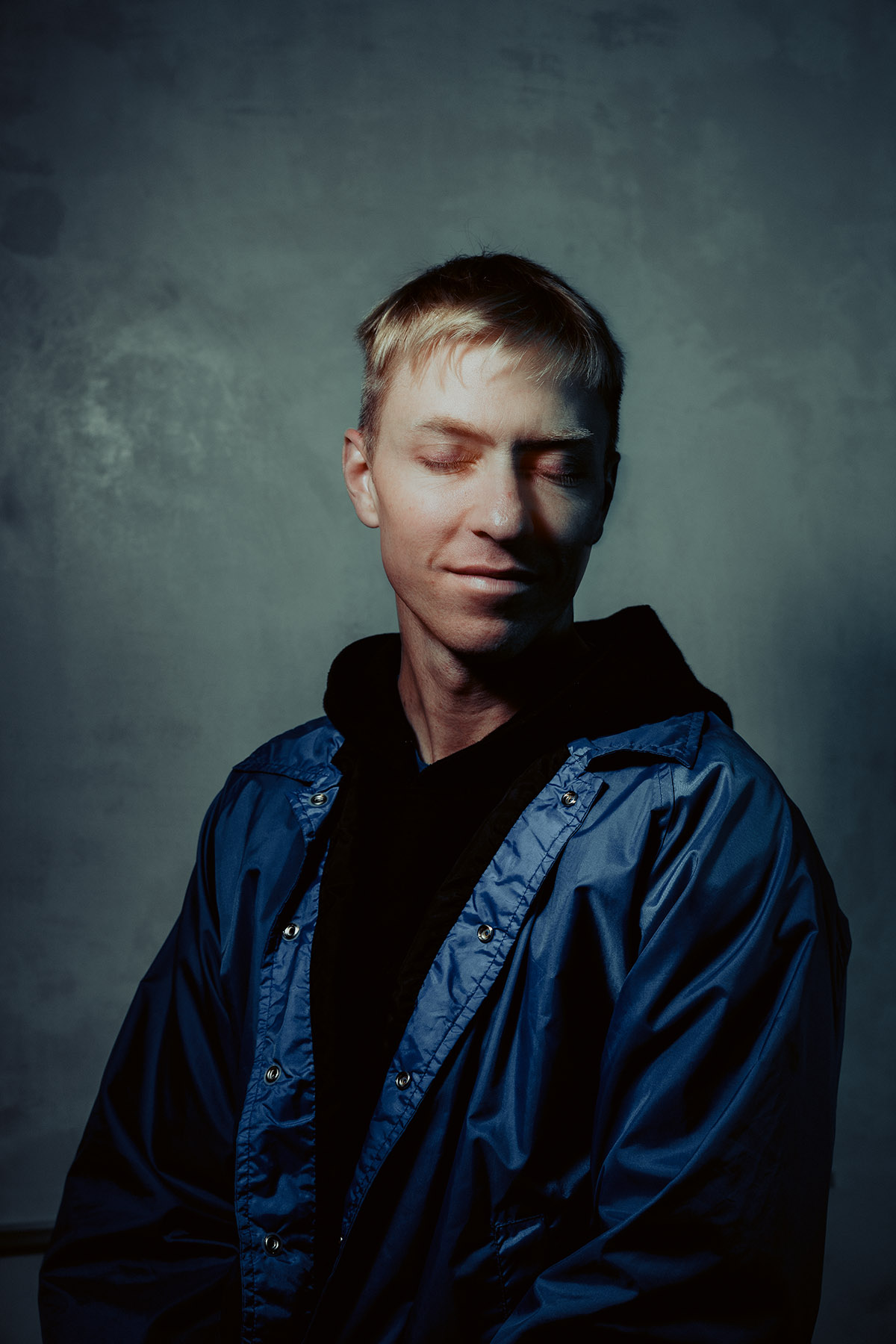
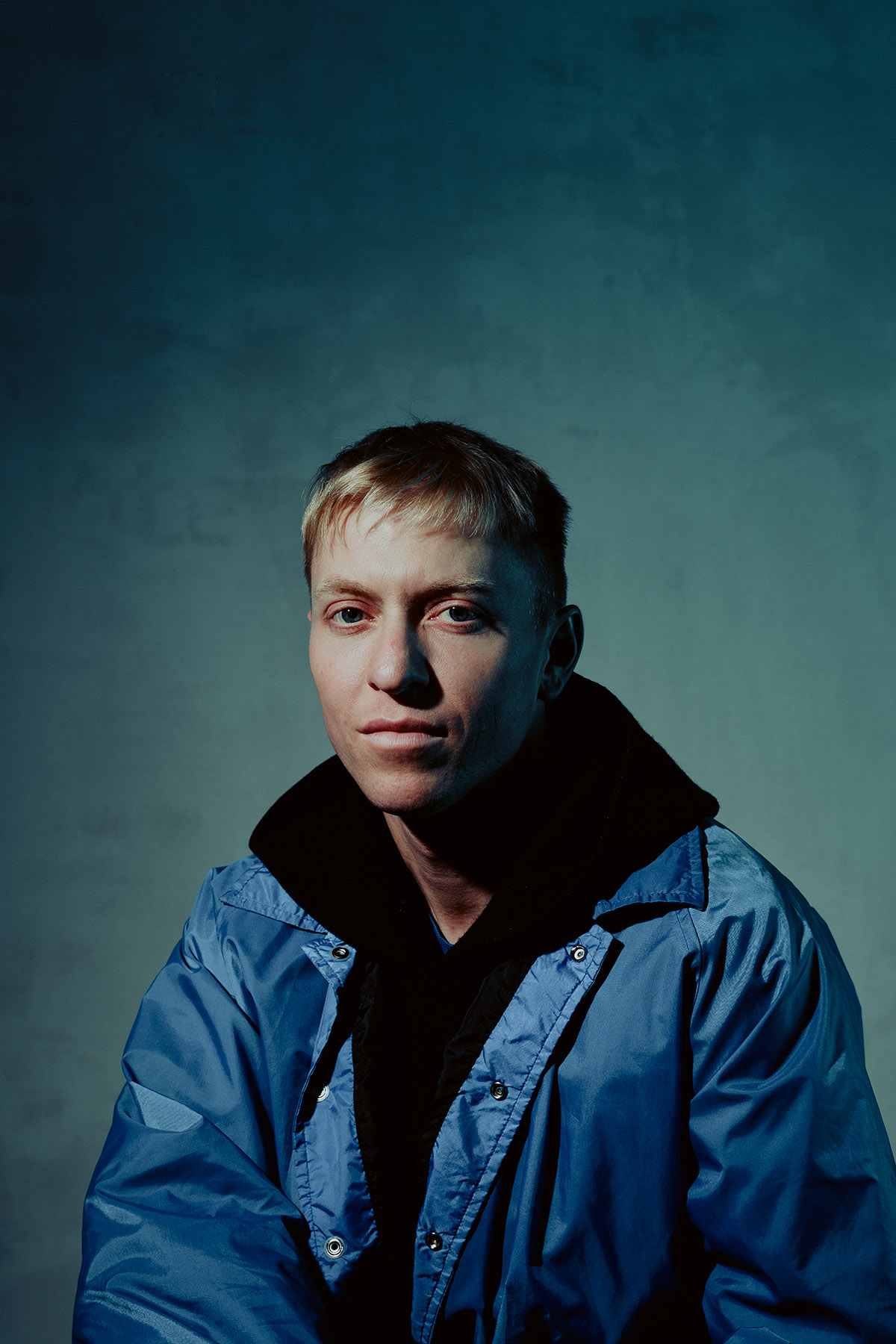
»I grew up with the bible, all I want is fags now!«
Jonas:
Question number three: There’s a “Parental Advisory” sticker on the cover of your new album. Do you feel ashamed or honored?
Jonny:
Oh, I love that! It’s like an obvious symbol of “sticking it to the man.” I wouldn’t have been allowed to have that kind of stuff with my ex-bandmates. With Brutalism, I just wanted to be real and direct. And I wanted to say how I am feeling even it’s a little bit crass…
Jonas:
“I know some good luck and a good fuck / a nice glass of wine and some quality time,” as you say in “Body Chemistry”…
Jonny:
Yeah, let’s talk about it—because that’s real life! I’m tired of all this imagery. I grew up with the bible, all I want is fags now!
»I want to go where the pain and the suffering are.«
Jonas:
Question number four: On YouTube, there’s a comment to your “Body Chemistry” video by a Russian guy named Maxim. He writes “One of my dreams is to get to your concert, however it’s not easy being in Russia.” Will you play any concerts there?
Jonny:
I would really love to! I’m against most stories I hear from bands that say, “We don’t agree with that government, so we’re not gonna play a show there.” I don’t want to judge, I’m sure all these bands have their reasons. But for me, going to Russia almost feels important; maybe to offer relief to some queer kids there who are bullied or feel unsafe. It feels that I have to go there to share that little secret with them like, “Hey, I’m one of you, you’re one of me, I care about you!” The other option is to say, “Fuck you, just another shitty government!” In America, we also have a shitty government. Can you imagine that bands say that they’re not going to play there anymore because of that? They would be outraged. I want to go where the pain and the suffering are. That’s where we all should be going.
Jonas:
Here comes the fifth and last question, we’re still at the same “Body Chemistry” video. A guy named Matt commented: “I’m a 57-year-old white male in America… in Texas… and love this song.” Best compliment ever?
Jonny (laughs):
Oh my god! I would say it’s the most surprising one.
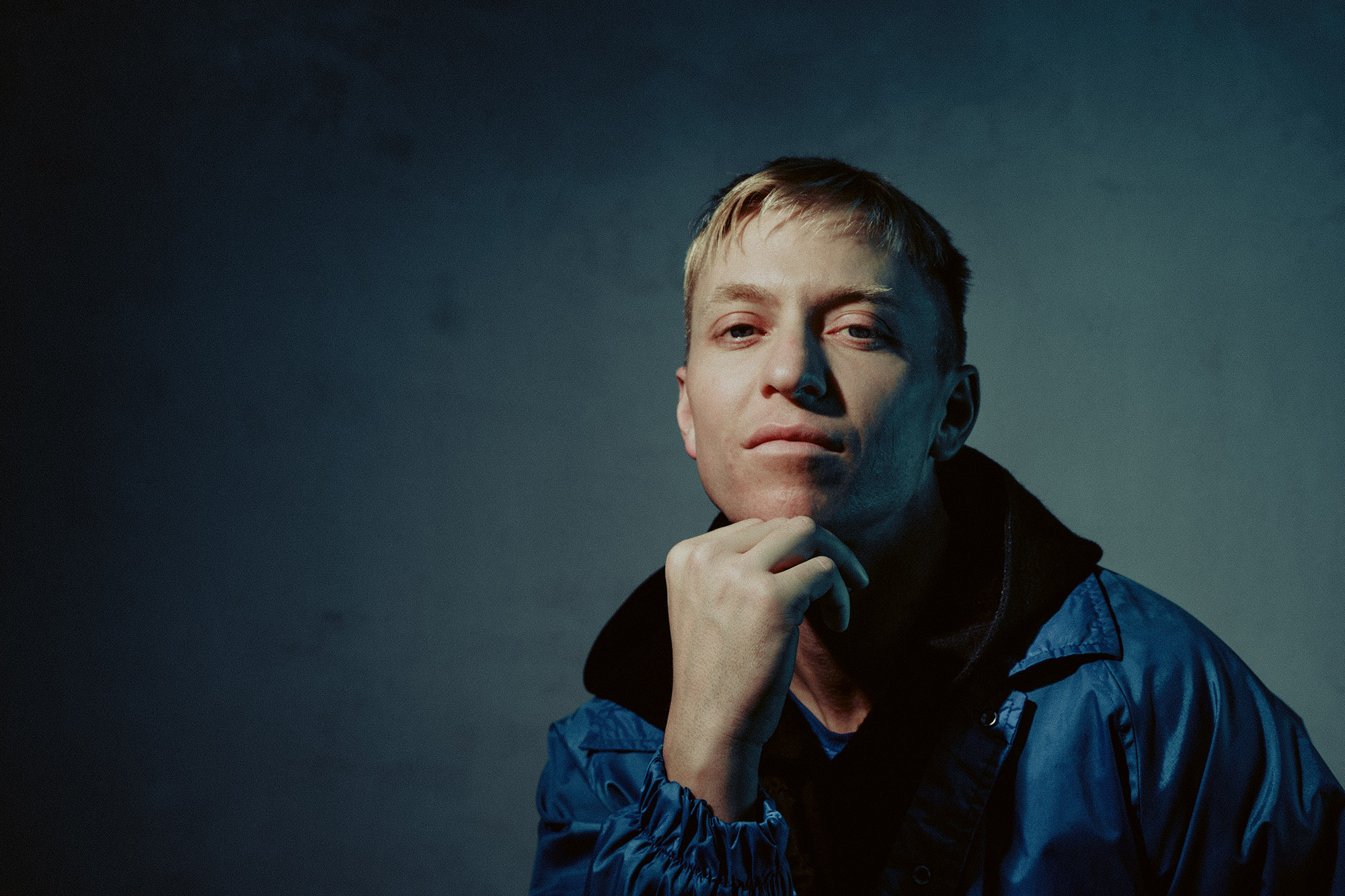
#thedrums #jonnypierce #mypmagazine
More about Jonny Pierce and The Drums
thedrums.com
facebook.com/wearethedrums
instagram.com/thedrumsofficial
instagram.com/jonnypierce
Photography by Maximilian König
maximilian-koenig.com
instagram.com/studio.maximilian.koenig
Interview by Jonas Meyer
Editing by Ben Overton





